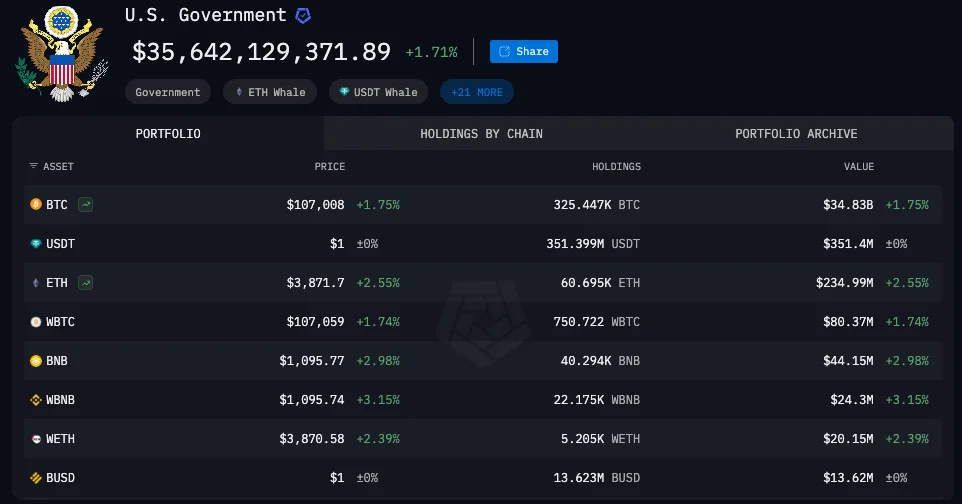A cryptocurrency portfolio valued at a staggering $35.64 billion and linked directly to the United States government is now publicly tracked by the blockchain intelligence firm Arkham. This massive digital treasury consists primarily of Bitcoin.

Detailed information from Arkham's platform reveals the government's wallet contains exactly 325,447 BTC. With Bitcoin's current market price, this single asset is worth about $34.83 billion. Beyond Bitcoin, the same wallet holds a variety of other seized digital currencies, such as Ethereum and Tether, bringing the total number of different asset types in the portfolio to over twenty-one.
Law enforcement actions against criminal operations are the sole source of these digital assets. The government did not purchase any of these coins. Significant contributions to the current balance came from two major operations: the takedown of the infamous Silk Road darknet market and the 2022 recovery of Bitcoin stolen during the Bitfinex exchange hack.
The government's approach to cashing out these seized digital assets has evolved.In the early days, the U.S. Marshals Service handled the process by running public auctions. The current strategy is more direct: officials now move large chunks of cryptocurrency to major trading platforms to be sold on the open market.This streamlined process quickly turns the digital coins into U.S. dollars for the Treasury.
For everyone involved in crypto markets, this massive wallet is a constant background presence. The ever-present possibility of a government sell-off hangs over the market, creating a known risk that can sway Bitcoin's price. If the U.S. were to unload a significant portion of its stash, the sheer volume hitting the market at once would likely trigger sharp price swings and increased volatility.
The Department of Justice and the U.S. Marshals Service are two of the government agencies in charge of these special assets.They are responsible for more than just managing the assets on high-tech blockchain networks. They also have to make sure that everything they do follows federal regulations about how to get rid of property that has been forfeited.
